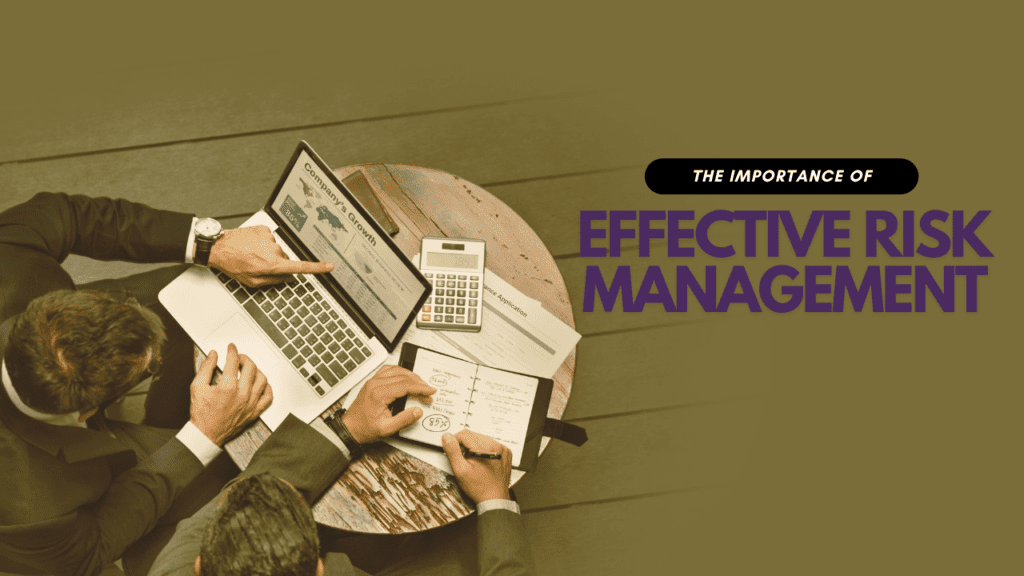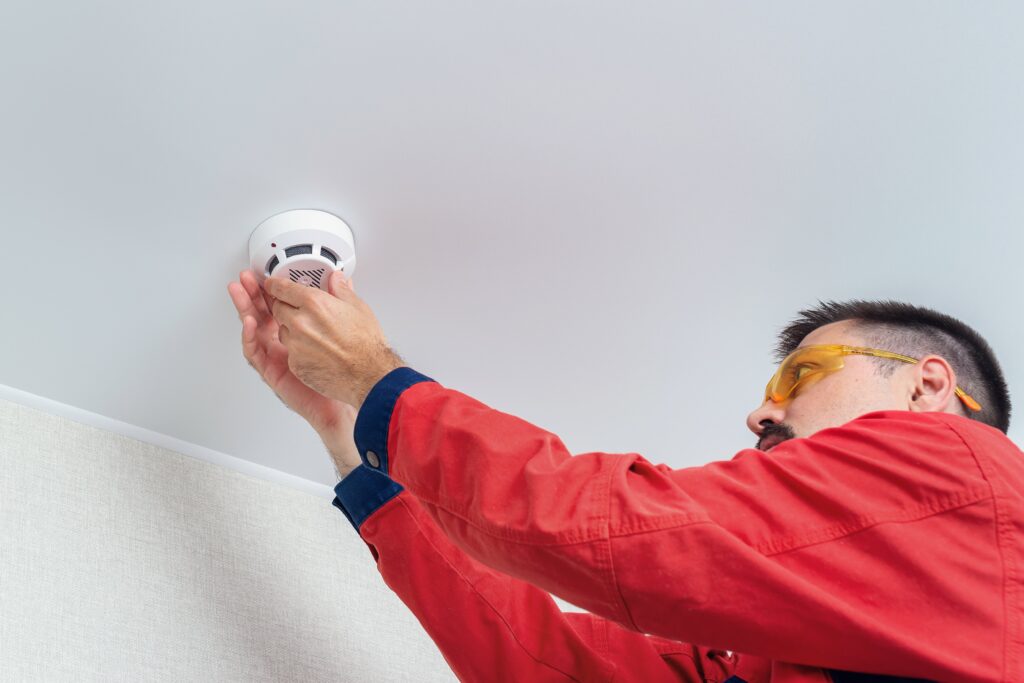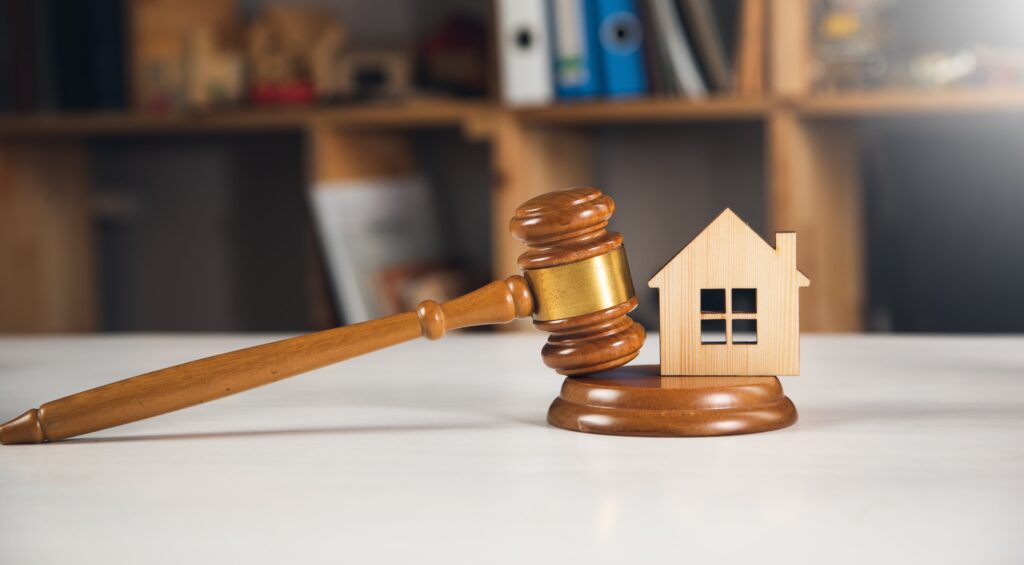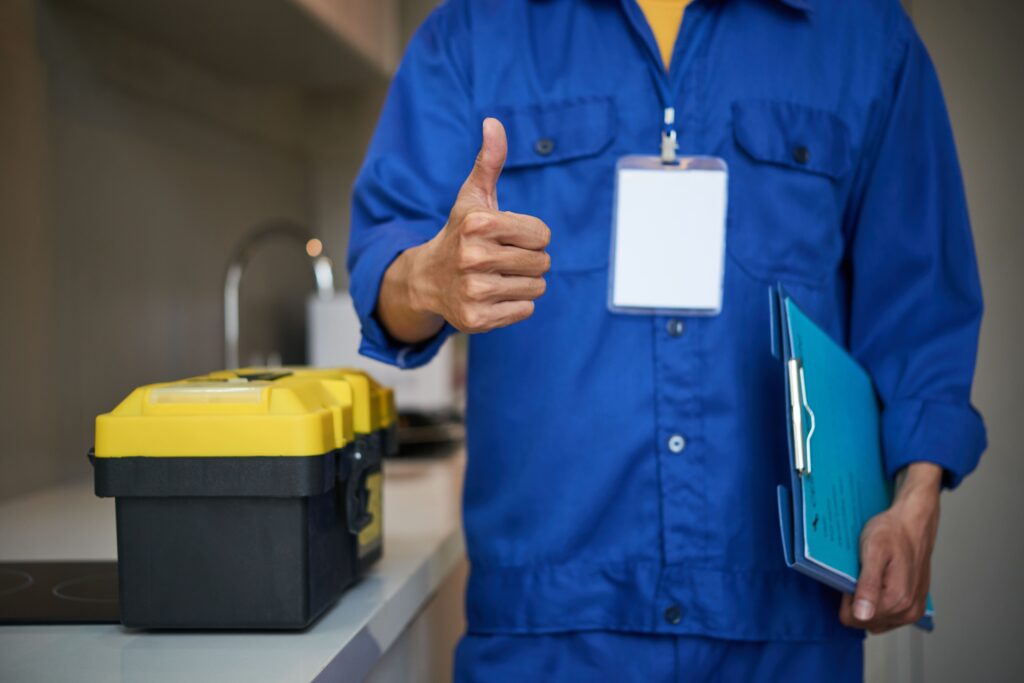
We personally do not know any real estate investors who enjoy being surprised.
Anything unexpected – whether it’s a damaging weather event or an eviction or a sudden water leak that floods your investment property – is usually unpleasant. It often requires some quick thinking, some instant mobilization of vendors and other professional partners, and an effort at keeping your residents safe, calm, and still willing to pay rent.
How can you prepare for the unexpected when, well – it’s unexpected?
The trick is effective risk management. Your property investments are extremely valuable. You need adequate insurance. You need a plan to limit your liability. And, you need a set of professional partners who can be constantly looking out for you and ensuring you’re not about to make a mess.
“That which does not kill us makes us stronger.”
– everyone’s favorite philosopher, Friedrich Nietzsche
We’re going to talk about how to manage your risk, and we’re also not going to be shy about telling you why property management in South Jersey is so essential when it comes to reducing your liability and ensuring a safe and profitable rental experience free from claims, lawsuits, and who-knows-what-else.
Real estate investors throughout New Jersey understand the list of inherent risks that are simply woven into the real estate investing process. When you own property in this fast moving and competitive market, and you’re renting that property out to residents, anything can happen.
This is not unique to residential rentals. Every investment has its risks. An investment that’s tangible and rented out as someone’s home has specific risks.
You need knowledge, experience, and a little bit of luck when it comes to maximizing your investment potential while protecting you and your property against potential pitfalls. That’s where property management is so invaluable. Property managers have a unique understanding of both the benefits and risks involved in rental properties. We can provide valuable insight into how best to lease, manage, and maintain properties with minimal risk and liability.
Let’s dive into the risks you’re facing and the steps you can take to minimize them. We want you to be secure. We want your property and your residents to be safe. Here’s how to prepare for the unexpected and establish a strong foundation for your investments.
RISK MANAGEMENT BEGINS WITH INSURANCE
 Insurance is a good place to start when we’re talking about managing risk.
Insurance is a good place to start when we’re talking about managing risk.
Or preparing for the unexpected.
There’s really not a downside to having the best insurance policy you can afford. The premiums are an expense you need to budget for, but they’re tax deductible, and when you think about the amount of coverage these policies offer, you’re investing in some smart protections.
You might need to repair or replace your property after a catastrophic event. You could also be sued by a tenant or a tenant’s guest, and you’ll need liability coverage so you can defend yourself legally.
These are just some of the reasons that insurance is so critical.
Here’s what else you should be thinking about when mapping out the insurance you need for your investments.
Insurance Basics
| Insuring your property is important in case you need to repair or rebuild. Make sure you have enough insurance on your property to cover the costs of building it again from the ground up.
PRO TIP Consult with your insurance agent frequently; at least once a year. Your property value changes, and that will impact the amount of coverage you’ll need. It would be an additional loss if you found yourself coming up short during a claim. |
Note that the insurance policy you buy when you’re renting out a home is different from the homeowner’s policy you have on your own home.
PRO TIP Renter’s insurance is a good idea for your residents. A landlord policy will protect the structure and its systems, but not the personal belongings inside the home. That’s the tenant’s responsibility. |
It’s not just about protecting the physical structure of your home and its systems. It’s also about protecting yourself and your finances.
A good landlord insurance policy will have higher liability coverage than your homeowner’s policy. This is important, because anything can happen when tenants are living in your property. PRO TIP Talk to your insurance agent about the required or recommended liability limits for properties in New Jersey. |
What If Your Tenants Need to Leave?
Learn about Loss of Rent Coverage
Another important protection you’ll need to have in place is loss of rent coverage. Every landlord counts on the rent you earn. This is the income that often pays for, or at least contributes to, many of the expenses associated with your property. So, you want to make sure you’re covering yourself in case you have to move your tenant out of the property to make repairs or rehab the entire structure.
Here’s an unexpected scenario: Suppose there’s a major blizzard with high winds that tears the roof off your home. Or, imagine the furnace and the heating going out during some of the coldest nights of the winter and major replacements are needed, which could take days or even weeks. Your tenants will not be able to stay in the home, which means you may have to put them in a hotel or some other property.
If they can’t live in the property for an extended time, you’ll lose a lot of rental income in addition to paying out of pocket for costs like hotel bills. If your landlord policy doesn’t already include loss of rent coverage, consider adding it. This is protection you need, especially if there’s damage to the property while tenants are living in it.
It’s always better to have more insurance than you need instead of not enough.
Invest in a good policy. Establish a great relationship with your insurance agent. Write the requirement for renter’s insurance into your lease agreement, and set yourself up for comprehensive coverage in case you need it.
WHAT’S MORE IMPORTANT THAN TENANT SAFETY?

Risk management extends to your tenants. The residents living in your property are a huge asset. They’re the ones paying your rent. They’re helping you take care of the property and they’re able to let you know when something goes wrong or needs to be repaired. Tenants are part of the way you protect your investment.
These assets can also be liabilities. Tenants can damage your property. They can get hurt at your property. They can stop paying rent. They can violate the lease. They can cause conflict and invite disputes.
All of those unexpected issues will require a solid and consistent policy so you know exactly how to deal with those situations if and when they arise.
What you always need to be thinking about from a risk management perspective is tenant safety.
There’s hardly anything more important than your tenant’s safety. You’ll want to make sure they’re safe from any potential dangers inside or outside of the property.
Here’s what we recommend you look at when you’re ensuring that you’re renting out a safe and habitable South Jersey rental property:
|
|
|
|
|
|
Safety and security procedures are good for your risk management plans, and they’re also important parts of your marketing and retention plans. Tenants won’t move into a home where they don’t feel safe. Spend some time upgrading the safety features at your rental home to ensure there aren’t any dangerous conditions. Allow them to install a security system, an alarm, or a video doorbell if these things help them feel safer.
YOUR PROPERTY’S SAFETY IS IMPORTANT, TOO. PROTECT IT FROM BAD TENANTS
 Tenant safety, as we discussed, is paramount.
Tenant safety, as we discussed, is paramount.
What about those situations where you have to protect your property from your tenant? A terrible tenant is extremely risky, and proactive landlords will do everything possible to avoid placing a bad tenant. Even with a fantastic and rigorous screening process, however, people can be unpredictable.
Here are some of the risks that are posed to you and your property when you place a tenant who turns out not to be who you expected.
| Your rent comes in late or not at all. No one wants to spend their time chasing down late payments or serving notices. | You have to evict. This is a great way to get your property back, but also time-consuming and expensive. A risk. | Lease violations. There’s a lot of risk to unauthorized pets or people or changes made to the property you didn’t approve. |
| Property damage. You don’t want to walk into the home after your tenants move out to find thousands of dollars in damage. | Broken lease agreements. Imagine a tenant moving out in the middle of the night with no notice. How will you hold them accountable? | Difficult relationships. Some tenants will simply look for reasons to be combative and argumentative. That risks your investment experience. |
Renting to a bad tenant can lead to eviction, lawsuits, and attempts to recover the cost of repairing whatever damage was left behind. You could find that damage exceeds the security deposit you collected, putting you in a financial bind.
Protect yourself against bad tenants with:
- A robust, consistent screening process
- Routine inspections while the property is occupied
- Positive and professional tenant relationships
LEGAL MISTAKES ARE RISKY. LET’S AVOID THEM

You have to comply with state and federal rental laws.
To do that, of course, you have to know what they are.
Risk management includes protecting yourself from expensive legal mistakes. You cannot effectively and safely rent out a property if you don’t understand your responsibilities on a legal level. There are habitability standards to uphold, for example. And, you’ll need to understand New Jersey’s security deposit laws. If your tenant isn’t paying rent, you cannot simply change the locks and kick them out. There’s an eviction process that needs to be followed.
On the federal level, you have to understand:
- The Federal Fair Housing Act
- The Americans with Disabilities Act
- The Fair Credit Reporting Act
You need to know the difference between a pet, a service animal, and a companion animal.
Do you? If a tenant says they’re moving in with a service animal, are you permitted to ask for documentation that proves their need for the animal? (Hint: no). If a tenant moves in with an emotional support animal and has the doctor’s note to prove their need, can you charge a pet fee? (Hint: Also, no).
You need to know what you’re required to do with all of the personal and financial information you collect on applicants during the screening process. You need to know the fair housing protected classes.
And then there’s your lease agreement. Do you know that it must be legally compliant and enforceable in New Jersey? You cannot simply download any lease template you find on the internet. There are disclosures that need to be made, and tenant protections in place that prevent you from showing up at the home unannounced.
Lots of room for error when it comes to legal compliance. Lots of liability and lots of risk. Get to know the laws. And if you can’t spend time learning the laws and staying up to date on the latest requirements, make sure you’re working with a management partner who can keep you compliant.
PROTECTING YOUR INVESTMENT FROM RISK AND LIABILITY WITH PREVENTATIVE MAINTENANCE

At Realty Solutions, we have a deep network of maintenance professionals, vendors, contractors, and industry partners who provide exceptional work at affordable price points. This is a huge advantage for the owners who work with us because they don’t have to waste time finding a vendor they can trust. They don’t have to waste time waiting for a vendor’s schedule to open up. They don’t have to collect multiple bids or worry if the quality of work is going to be acceptable.
Having access to a great team of vendors is important to the way you respond to emergency and routine repair needs.
More importantly, it helps you stay on top of preventative maintenance, and preventative maintenance helps you avoid the risk of deferred maintenance.
That feels like a point that really needs to be driven home:
Preventative maintenance protects you from the risk of deferred maintenance!
This is an important part of protecting your investment. Preventative maintenance will help you avoid property damage and unexpected costs.
It’s never a good idea to cut costs when it comes to maintaining the investment property you’ve already poured a lot of money into. You need to take actions that protect its condition and value. Deferred and unreported maintenance issues are ultimately more expensive than fixing the issue while it’s minor.
If you don’t already have access to a great maintenance team, you want to make sure you’re working with licensed and insured vendors only as you begin to assemble that group.
Allowing someone that you hired off the street to work at your property only invites extra risk.
Let’s imagine an uninsured worker gets injured while repairing your home. Guess who will be sued, and likely responsible for medical bills and perhaps even lost wages? That’s right – the landlord who hired that worker.
Without the right vendors, a repair may be made incompletely or incorrectly.
Focus on good vendors who will help you execute your preventative maintenance plans. It’s a win.
PROPERTY MANAGEMENT IS YOUR SECRET WEAPON IN MINIMIZING RISK
There are many good reasons to work with a local property management company in South Jersey. We can lease, manage, and maintain your property expertly.
One of the best reasons, perhaps, is that you’ll limit your risk and liability.
When you partner with a management company, you don’t have to worry about staying up to date on the laws and rental requirements. You don’t have to stress about placing the wrong resident in your property or making a mistake with the security deposit. You don’t have to chase down late rent or hold your residents accountable.
Your property managers do all this for you.
Hand the leasing, management, and maintenance processes over to a property manager who can be trusted to deliver the best outcomes for you, your property, and your residents. We know how to protect your investment and your financial interests. Risk management is part of what we do.
Please contact us at Realty Solutions, and we’ll see what we can do to help you avoid those expensive turnovers and have a profitable and pleasant rental experience. We lease, manage, and maintain homes in Audubon, Collingswood, Cherry Hill, Haddon Heights, Blackwood, and the surrounding communities.
